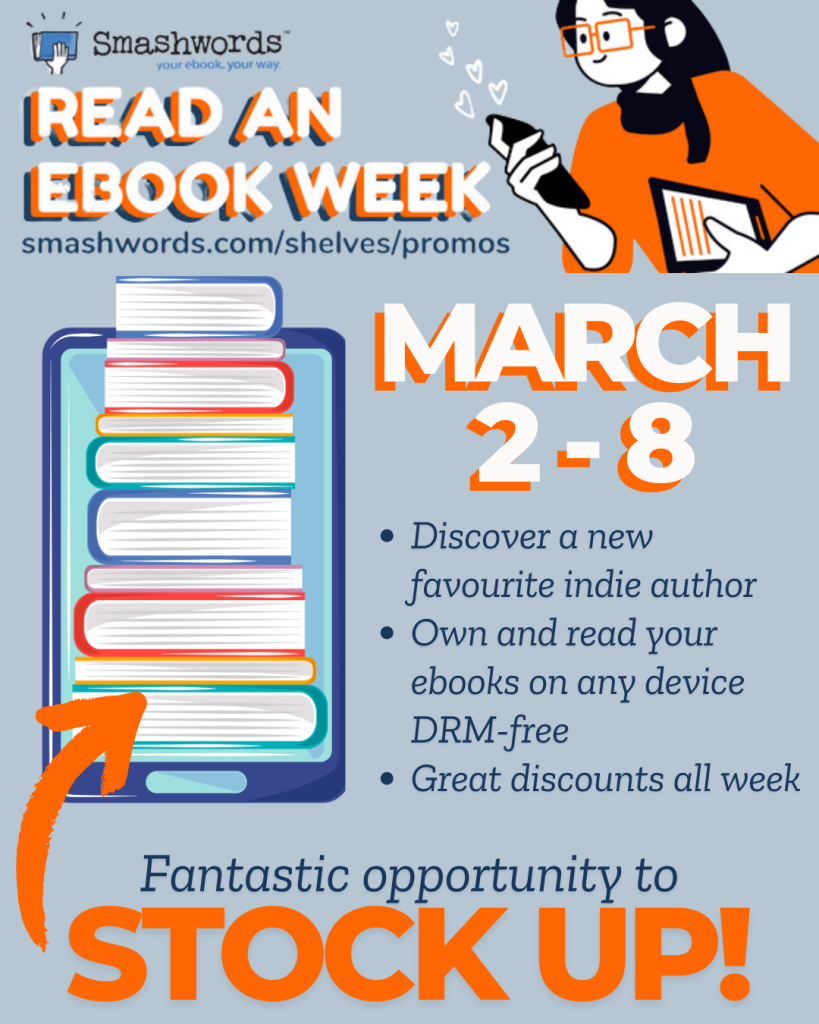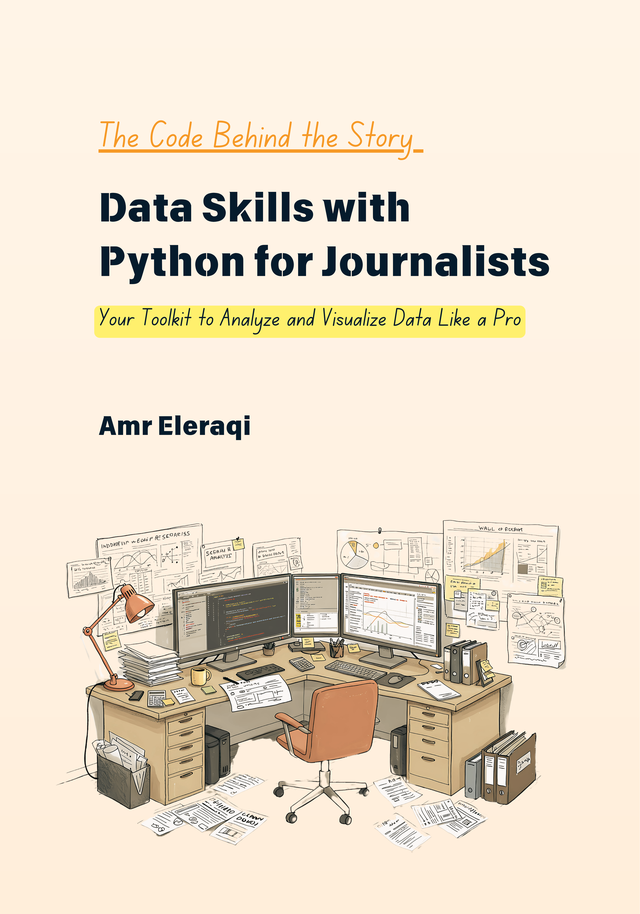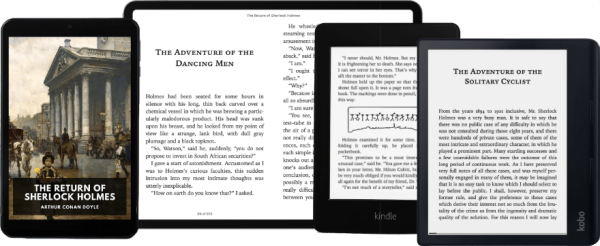Suche
Beiträge, die mit ebooks getaggt sind
BOD, ePubli verlangen einen Mindestpreis für ein eBook, und Amazon ... naja, das wäre die letzte Möglichkeit.
Danke!
#Schreiben #Bücher #eBooks
There’s heaps of DRM-free indie books on sale or even free for the next week:
https://www.smashwords.com/shelves/promos
Mine are here, all 50% off (making them the massive investment of US$2 to try out) for escapist queer romantic fantasy fun:
https://www.smashwords.com/profile/view/wendylpalmer
All proceeds to Ukraine 🇺🇦
Content warnings on my website: https://wendypalmer.au/content-warnings/
There’ll be plenty of other #MastoAuthors on sale there too (feel free to tag yourselves).
Give it a browse, you might discover your next favourite writer
@bookstodon @indieauthors #BookSale #Smashwords #fiction #ebooks #fantasy #QueerRomance #IndieAuthors #IndieBooks
Content Warnings
My books are down the cosier end of the fantasy spectrum, but they still have plots and bad stuff happening (usually off-page). So I’ve made this page to detail Content Warnings for all my bo…Wendy Palmer, indie author
Each chapter features hands-on exercises, real-world case studies, and step-by-step guides, so you’ll quickly gain practical skills.
Find it on Leanpub!
“Standard Ebooks is a volunteer-driven project that produces new editions of public domain ebooks that are lovingly formatted, open source, free of U.S. copyright restrictions, and free of cost.” ⚖️
See what’s free to read on January 1 👇
https://standardebooks.org/blog/public-domain-day-2025
Please boost 🙏
#StandardEbooks #PublicDomain #PublicDomainDay #Copyright #Ebooks #OpenSource
CC @standardebooks
4 Free eBook Reader Apps for Android to Get You Out of Your Reading Slump
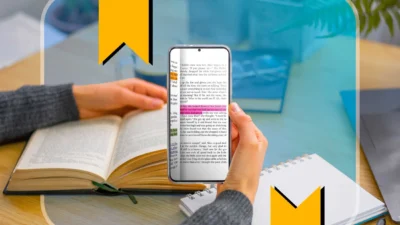
Google Play Books and the Kindle app are perfectly fine. They keep your books in the cloud (perfect if you switch devices often) and provide a decent enough interface to read for long periods. But they’re only compatible with just one or two file formats. Neither app plays nicely with formats other than EPUB or MOBI. You have to manually upload your files to the cloud to read the books, so these apps aren’t totally offline. Plus, you can’t really fine-tune the reading experience or the app interface like you can with other apps.
For Kindle, you could convert formats in Calibre and send via WhisperSync to your Kindle library, but if you want to stay out of the Kindle ecosystem, then using a standalone app is your alternative.
For the rest of us who find these big tech apps lacking in some way (perhaps you want to read comic books or use a custom font), here’s a list of a few neat eReader apps that I like.
Personally, I use Moon+ Reader Pro. It not only opens the Calibre e-book server directly on my desktop computer, it will also filter that Calibre library by newest or Reading List, and it can use any WebDAV networked folder (e.g. NextCloud) to sync reading progress, highlights, etc across my Android devices. It’s downside really is that it is limited to reading across Android devices, so my desktop computer as well as iPad won’t sync with it.
See https://www.howtogeek.com/4-free-ebook-reader-apps-for-android-to-get-you-out-of-your-reading-slump
#Blog, #ebooks, #reading, #technology
Your brain can grow from reading and learning – e-books offer the same benefit as paper books
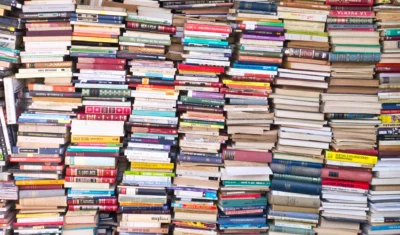
The number of people who read for fun appears to be steadily dropping. Fifty percent of UK adults say they don’t read regularly (up from 42 percent in 2015) and almost one in four young people aged 16 to 24 say they’ve never been readers, according to research by The Reading Agency.
Two regions in the left hemisphere of the brain, which are crucial for language, are different in people who are good at reading and are likely to be shaped by the habit.
Clearly, brain structure can tell us a lot about reading skills. Importantly, though, the brain is malleable—it changes when we learn a new skill or practice an already acquired one. Reading is likely to shape the structure of the left Heschl’s gyrus and temporal pole. So, if you want to keep your Heschl’s thick and thriving, pick up a good book and start reading.
Reading is the same whether you read an e-book or a paper book. The big difference is e-books are generally a lot more accessible, are cheaper, take up less space, and usually have some form of dictionary for quick word lookups.
There is really no excuse not to read: Books are freely available in libraries, many classics are in the public domain, and there are very diverse topics to cover ever possible interest type. Time though is typically the excuse most give, but this is also not very true, if you consider carefully what a 24-hour day looks like. I set aside 30 mins, when going to bed at night, to read. It also has the added bonus of relaxing the mind and readying it for sleep.
See https://www.wired.com/story/good-at-reading-your-brain-may-be-structured-differently
#Blog, #ebooks, #health, #reading, #technology

